William Donovan (1883-1959) was a lawyer, an Irish Catholic, Federal Prosecutor, bootleg buster, speakeasy raider, Assistant United States Attorney General, and a life long enemy of Hoover J. Edgar. That latter alone seemed recommendation enough. But wait there is more. He also created the Central Intelligence Agency in all but name. How he came to do that is quite a story.
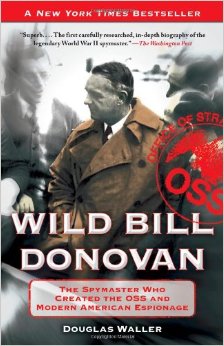
The O’Donovans left Ireland in the 1840s for Montreal, and from whence to Buffalo which was a boom town, thanks to Great Lakes shipping, the Erie Canal, and the railroads going west. They shed the ‘O’ to become Donovan, and one of the grandchildren of the migrants was William. He grew up in Buffalo which was still booming and bustling at the end of the Nineteenth Century.
Thanks to the encouragement of a local priest he was well educated and did a Bachelors degree at Columbia University in New York City, and then a law degree there, where he was a classmate of Franklin Roosevelt. Sitting in the same lecture hall, they were worlds apart. Donovan was bog Irish in looks, manner, and attitude, while Roosevelt was aristocratic, aloof, and condescending, the former knew he had to work for a living, while the latter was driven around by a chauffeur who sometimes carried his books. Their paths would cross again.
Leaving aside the details, Donovan went back to Buffalo to practice law but he found it boring. When married, he and Ruth did a world tour and that ignited the wanderlust never to be abated. They went to Tokyo, Paris, Rome. Thereafter he kept a suitcase packed and carried his passport ready to take off again. When, during World War I, Herbert Hoover started food relief in Belgium, Donovan volunteered to work on it, and in 1916 he was Berlin with a party negotiating passage of food to Poland. This trip was at his own expense, a practice he followed thereafter, paying his own way.
Earlier he had joined the National Guard in Buffalo, partly as a way into the upper echelons of Buffalo society. When the United States entered the war, he became a Colonel of the infantry, where he got shot up and walked with a limp ever after. That was when he got the nick-name ‘Wild.’ Though he was later promoted to general at a desk, out of the army he preferred to be called Colonel after his combat service.
He was much medaled, more so than Douglas MacArthur, and that rankled the latter ever after.
After the war, a Buffalo celebrity, he became the Federal Prosecutor in a city infamous for it bootlegging and the many blind-eyes turned to it. He took the blinders off and enforced the law with the same energy and fearlessness he had found within himself in no man’s land in France. Since much of the high society of Buffalo financed the illegal alcohol trade with Canada, he prosecuted many of the social and financial elite, including eventually his own in-laws. He had warned them, but they refused to believe he would touch them. Wrong! Thereafter, he was ostracised in Buffalo, and his wife soon started leading her own, separate life, as did he.
By the way, he seldom, if ever, drank alcohol himself. His failings did not include hypocrisy.
He went from there to Washington D.C. as an assistant attorney general, where he was equally vigorous, so much so that he made an enemy of Hoover J. Edgar, who opened a file on him, one never to be closed. Donovan’s many prosecutions of criminals deprived Hoover J. Edgar of the limelight and he hated that. It also upset some of the arrangements Hoover J. Edgar had with organised crime figures, we now know.
Donovan had hoped that incoming President Herbert Hoover would appoint him attorney-general but it was not so, perhaps because appointing a Catholic to the post was not a confirmation fight President Hoover wanted, perhaps because Hoover J. Edgar was finding dirt and there was some to find, and slinging it. Disappointed, Donovan quit.
He was a lifelong Republican, and ran for lieutenant governor of New York against a Democratic ticket led by Franklin Roosevelt. While Roosevelt treated him with the amused indifference of the landed gentry in this contest, Donovan was tense and desperate to prove himself. He failed. He tried again in 1932 as the Republican candidate of governor and failed again in the face of the Democratic landslide of that year.
But in this period the most important point is that he travelled extensively in Europe and Africa. He became an unofficial go-between, agent, and observer. He was in Berlin in the 1920s and saw a young Adolf Hitler speak who, like a priest, sometimes stood at the exit door, and shook hands with those leaving. In this way Donovan shook hands with Hitler. Imagine how Murdoch’s organs could distort that today.
When the U.S. Army failed in its diplomatic efforts to get observers placed with the Italian Army in Ethiopia, intermediaries convinced Donovan, as businessman, to go and observe, he took little convincing. He travelled at his own expense to conceal the government interest. To get permission to enter Ethiopia, Donovan went to Rome and had an audience with Il Duce whom he flattered into signing a visa. Off he went. He later reported to Washington contacts.
In the first ten years of his marriage to Ruth he spent, in total, eighteen months with her, and some of that was travelling time, too. His frequent traveller miles must have added up to millions.
There were many other trips, and each time he would report what he had seen to army contacts like MacArthur or Washington Republicans. MI5 in England marked him as an agent of influence and began to cultivate him. He soon became an unofficial, informal conduit between MI5 and the government in Washington.
Donovan, by now, was part of loose association of businessmen and journalists in New York City who appointed themselves observers and intelligence agents for the United States government in their travels. That sent him off on other self-initiated and self-funded assignments. These expenses and the costs of the lavish life he lived when in the States were considerable and caused much tension with Ruth, his estranged wife, but that did not slow him down.
While he loved the coming and going, he also learned and said that much more important information could be learned by compiling and reading files than watching elevators traffic in hotel lobbies. His emphasis on the intellectual side of intelligence work, as opposed to field work, would become a distinguishing feature of the OSS, though little of that is recounted in these pages.
As the war clouds moved toward the United States, Donovan got a call from the Secretary of the Navy in the Franklin Roosevelt administration, Frank Knox, a rock-ribbed Republican. Knox commissioned Donovan to go to England and assess its capacity to endure a German invasion. Off he went, at his own expense, filling his notebooks with a code he had devised for himself in earlier travels, and came back to write-up a three hundred page assessment. He was hard-headed about it but positive: England would endure. It was a conclusion to which he was coached by MI5 and MI6, but which he also genuinely believed. That led to other such assignments, in the Bahamas, Canada, in a kind of drawn-out job interview and test.
Finally, Roosevelt asked him to assess the intelligence services of the United States government. This was releasing a fat boy in a candy shop. It is a long story but the short version is that there were a number of competing agencies that jealously guarded their zones and prerogatives, and did not share information. There was Army Intelligence, there was Navy Intelligence, there was the State Department’s Information Service, there was, most of all, the Federal Bureau of Investigation. There were other, second order, offices, directorates, and agencies. They each gathered and compiled reports. Moreover, within each of these agencies and offices there were further divisions, rivalries, and conflicts. No one had access to, let alone read, all the information generated, and it was wildly uneven. Each tried to report directly to the President, and each, in the pursuit of budget, devoted much time to disparaging the others and interfering with each other. Anyone who has worked in a large organisation will be familiar with this pathology.
The most pathological of all was, no surprise, Hoover J. Edgar. He kept adding to his file on Donovan, mostly about women.
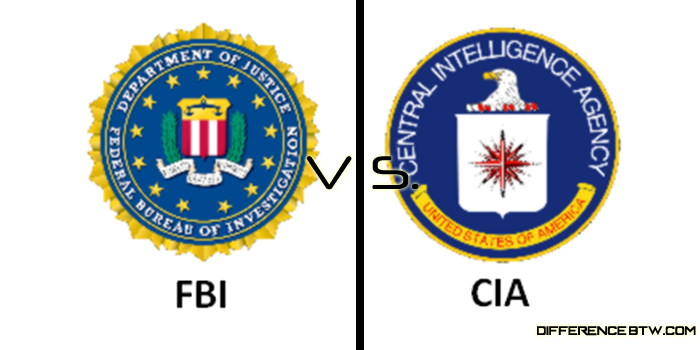
Donovan proposed, first, an agency that would oversee and centralise the findings of all the services. Any Vulcan can see the logic of that but it led to a colossal bureaucratic war, which he lost. The intelligence services would not combine nor cooperate and they would never share information, but they did briefly unite to stop the creation of any new supervisory intelligence service such as Donovan had recommended.
Still Roosevelt liked what he saw from Donovan — the energy, the optimism, the audacity, the aggression — and found a role for Donovan, first as director of the Office of War Information, where he hired playwrights (Robert Sherwood) and film-makers (John Ford) to create propaganda, thereby offending journalists who thought they should have had the sinecures. Thereafter, the press never missed a chance to denigrate him.
Donovan also believed in research, though quite where he developed this conviction is not explained in these pages, He set up offices in the Library of Congress and hired experts in area studies like North Africa, for example, Ralph Bunche who is not named in this book. He also hired women as researchers and paid them over the going rate, but did not promote them to positions commensurate with their abilities. As far as Hoover J. Edgar was concerned hiring black men like Bunche and paying women higher salaries were criminal acts and his Donovan file grew. He never missed a chance to blacken his name in the constant backstage back-stabbing that makes Washington D.C. go around.
Since Donovan’s was the new boy, the established agencies declared his operation to be amateurish, and thus untrustworthy. Secrets were withheld from Donovan because he could not keep a secret they said. He then set about a campaign to prove a point. He invited his chief critics to lunch, where he invited them to air their criticisms about his sloppy security to him. They did. Then at the end of the lunch one of his assistants would appear and hand him a file. In it would be copies of some super-secret documents from the critic’s office which had been earlier purloined, accessed, photographed and replaced by one of Donovan’s amateurish agents unbeknownst to the smug critic and so deftly no one in the interlocutor’s office from when it came noticed it had happened. He would, without a word, slide the file across the table to the critic. He thus privately humiliated four or five leading critics, who then redoubled their efforts to destroy him. However it paid dividends because it was an exercise that made him legend among his own staff. Wild, indeed. He would stop at nothing.
In short order, Donovan had thousands of employees, many doing research on the ground in Portugal, Spain, Bulgaria… Thus born was the OSS, first the Office for Special Services, and then the Office for Strategic Services: espionage, sabotage, propaganda, and the like.
He did win the most important bureaucratic contest in that the FBI was confined to United States territory as a counter-intelligence agency, while the OSS had the world. This is a parallel of the distinction between MI5 and MI6 in Great Britain. Hoover J. Edgar never forgave him. They then argued over whether foreign embassies in D.C. fell under the OSS or the FBI. At least on one midnight occasion OSS and FBI agents ran into each other while burgling a foreign embassy on Massachusetts Avenue. All very KeyStone Kops.
The difference was this. If the FBI wanted something, it was done the American way. Kick-in the door and take it. This approach to foreign embassies in D.C. had quickly infuriated the D.C. police who were blamed for not catching the burglars. If the OSS wanted something, there was subterfuge, subversion, and suborning which took longer but left few traces. The OSS developed many spy gadgets to do these things. To Hoover J. Edgar the OSS approach was effeminate.
It is easy to see where the Special Relationship on intelligence arose per ‘The Sandbaggers.’ In the earliest days, Donovan copied the British example, and the Brits fed him intel in order to influence and tame him, while he milked them. Indeed for a time many in D.C. regarded him as a representative of British interests, since he parroted their line, e.g., on the invasion of the Balkans.
But he had many struggles with the British, too. The details are moot, but the conflicts of interest were real.
The OSS efforts to reduce Vichy resistance to Operation Torch were many but to little effect. But at least the OSS did not truck with Vichy, as many other Americans did, even while the Vichy Administration in Algeria deported Jews to German death camps with the complicity of some American diplomats. The author seems unaware of this bad business.
While the British Special Operations Executive was inactive in some of the territory ceded to it in the papal division of the world the two agencies had agreed upon, it would not tolerate an incursion by Donovan. The Brits may have done nothing in Rumania, and have no plans ever to do anything, but they would not tolerate an OSS operation there. Never!
While the war was being won and lost in Russia and later in Normandy, the SOE and OSS were besieging their respective chiefs of staff and prime minster/president with memoranda by the score about who had exclusive rights to launch sabotage operations on Corsica and on Sardinia!
Despite Donovan’s efforts and those of his field agents, many of whom were killed, the Office for Strategic Services seems to have had little, if any, strategic effect. At a tactical level some of its projects did payoff.
One of his most significant personal contributions was to convince the Nuremberg chief United States prosecutor to call victims as witnesses in the crimes against humanity trials. That prosector had planned to argue the case by reading facts and figures from German records and those Germans who had confessed to their part in it. Donovan argued that the victims had a need, a right, to confront their demons and say their piece for eternity. When the prosecutor came around to the tactic, Donovan turned his field agents loose on finding such victims of the death and labor camps. Their harrowing testimony is forever with us. Thanks be to Wild Bill Donovan.
While much of the book details Donovan’s efforts to insert OSS agents into Sicily, Sardinia, and Italy, not a word is said about the American organised crime gangsters who facilitated the entry and the sweetheart deals made with them. Those deals began a long-running association of the American mafia with the later CIA. On this very distasteful story see James Cockayne, ‘Hidden Power: The Strategic Logic of Organised Crime’ (2016).
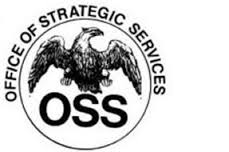
The book charts much more of Donovan’s many trips and the missions he sent, but none yielded much success. There is no doubt, Donovan had a great deal of wit and energy, but the OSS was a chaotic organisation, badly run, lacking focus, seldom disciplined, often more interested in show than go, and constantly preoccupied by the rival intelligence agencies in D.C.
Though in some asides, we learn that the research done in D.C. by the OSS was done well and was very useful, but we get little on that and more on Donovan’s diet than whatever he did to establish and develop that analysis. Readers of the ‘Pentagon Papers’ will recall that the CIA was an honest analyst in those pages, unlike G2 Army Intelligence, State Department Information, Navy Assessment, and NSC briefs. These others were unfailing optimistic and upbeat following the political wind, with a little more effort (i.e., more mayhem and murder) and the Vietnam War will end in triumph. Only the CIA was Cassandra each and every time, and right.
At the end of World War II in 1945, President Harry Truman shut down the residual New Deal agencies, and those created for the war effort, one after another, as quickly as possible to return to normal life, and that included the OSS. Donovan had tried to redirect it first at counter espionage regarding the USSR in the USA, but Hoover J. Edgar stopped that. Donovan then tried to target the USSR but found that hard going.
In 1947 the CIA emerged from the analytic efforts that Donovan had started, but quite how is not the subject of this book, but another by the author.
One of those desk bound exports was the manual conveyed to occupied Europe on how to disrupt the Occupier without personal risk. I note especially the part about using participation on committees to slow everything down, and how managers can slow things done. These manuals must have been the basis of Telecom.
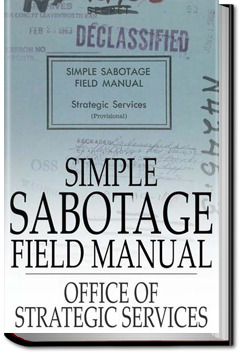
‘Wild’ Bill Donovan is a name I have known for years. When and how I learned it is lost in the mists of time and tide. Reading biographies of others from the 1940s and 1950s, his name cropped up. It seemed time to find out more.
The book is written in the annoying style of newspaper journalism. Each chapter, and many sections within chapters opens with a hook sentence, e.g., ‘The telephone rang at midnight and the caller said..’ Then it back fills to get to the phone call, usually. I say ‘usually’ because a few of these hooks seem to be forgotten and go unexplained. It means each time the narrative is interrupted and resumed, like stop-start traffic. It jumps around so much I wondered if some of the dates were wrong. No doubt, this method of exposition is what makes it, per the cover, fast paced. It also made it, at times, unintelligible to this reader.
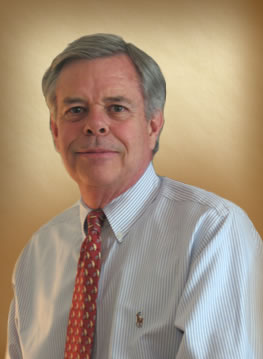 Douglas Waller
Douglas Waller
It lapses into clichés far too often. Opponents are gunmen who gun down innocents. One-eyed and simple-minded more than once. No doubt these clichés are what make it exciting, per the front cover.
I turned a lot of the later pages quickly, having long lost interest in Donovan’s travels, dinners, and handshakes, and his sometimes naive efforts to exert influence in China and elsewhere. These details tell the reader nothing about the man.
Skip to content
